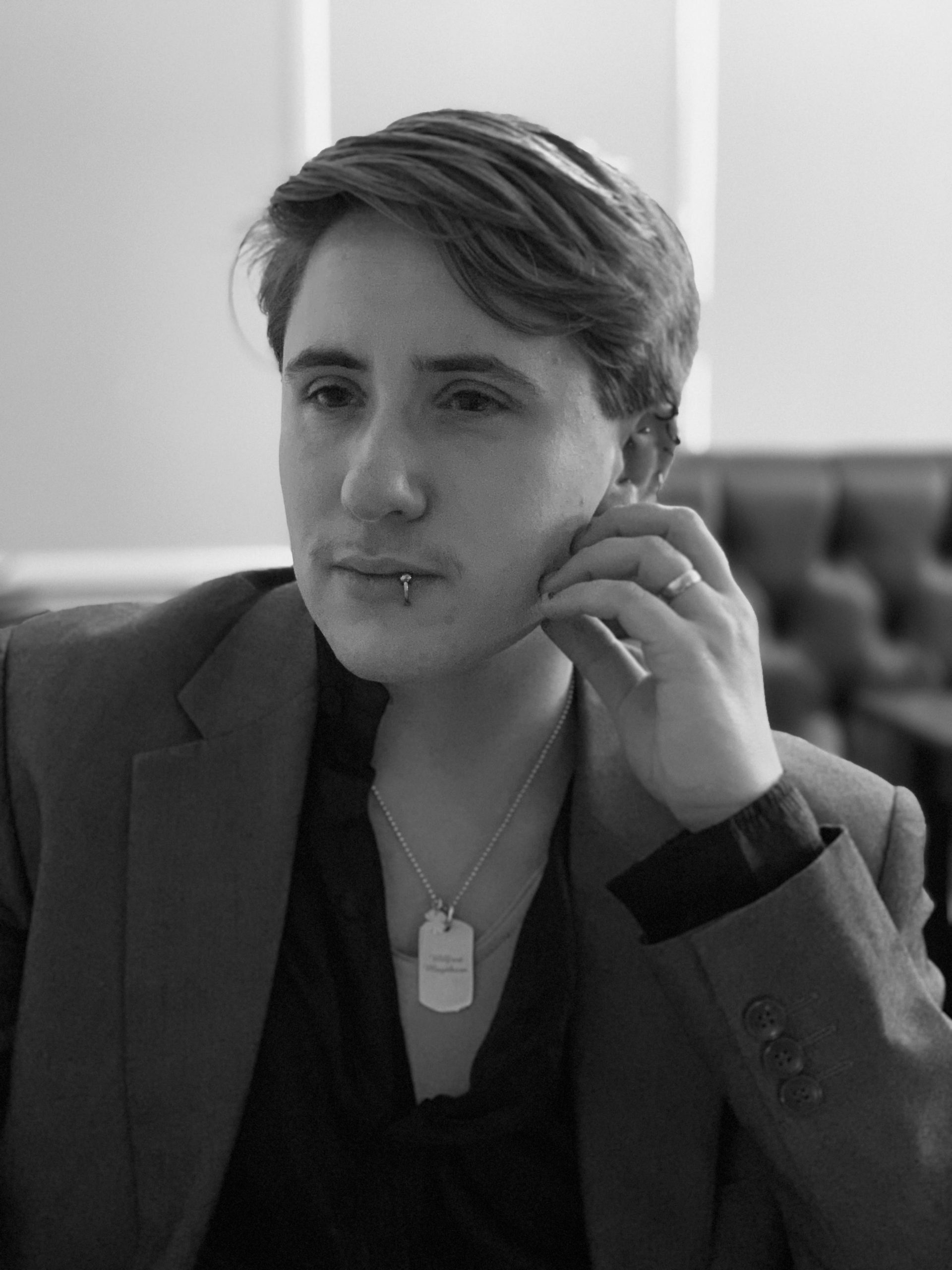
Reviewed by A W Earl
Naomi Cohn’s The Braille Encyclopedia sits on the line between prose-poetry collection and flash memoir, exploring the author’s experience of sight loss, blindness, and altered perception through adaptive technologies, especially reading and writing in Braille. Formatted alphabetically rather than chronologically, Cohn presents the reader with a series of encyclopedia articles – Noise, Punctuation, Hinge – which create an avenue into her life and the wider histories of Braille, blindness, and medicine.
Cohn’s fragmented approach allows images to recur, gaining emotional and practical resonance from their increasing interconnection. This form emphasises both the unknowability of another’s understanding of the world, as well as the processes by which our eyes build a complete image – with an awareness of how easily that sense of wholeness can be disrupted.
It is these gaps – in perception, in understanding, in very being – which form the heart of The Braille Encyclopedia, reaching for the possibility of another way of being, attempting to express the inexpressible.
I live lost in the few millimetres between lines of braille, lost between poetry and prose, lost in the zone between total sight and total blindness.
Cohn deals unsentimentally with misconceptions surrounding blindness and Braille. It does a disservice to her writing to dwell overmuch on the practical aspects of blindness, but these are handled admirably, accessible to her predominantly sighted audience. Cohn never understates the imperfections of the adaptive technologies available, nor the grief that has come with the loss of her sight. The Braille Encyclopedia is far more concerned with the way technologies alter the perception of the world. By unsettling the senses, Cohn explores not what ‘altered sight’ is, but what it means.
As a work, The Braille Encyclopedia is more than the sum of its parts. The construct of an encyclopedia provides a valuable framing narrative, although some essays sit more comfortably in that form than others. In some places, this structure leads Cohn’s effects to become more diffuse and less keenly conveyed. But the requirements of the alphabet alongside Cohn’s careful editing create powerful, unexpected understandings. The auditory chaos of Noise meets the visual disturbances and unease of Nothing.
So, when I have a lot of reading to do, I listen to the words. But my ears grow tired. Braille, by contrast, is a gorgeous lake of silence.
It is sound, not silence, which shakes out a moment of clarity and peace.
The noise shakes loose a white movement, left-to-right swoop, a patch of winter sky cut loose in the shape of wings. This is not nothing.
This sense of swooping, a clarity regained with a rush of wings, runs through The Braille Encyclopedia: a liberation created where one is freed from the pressure of perception. But Cohn never detracts from the work, frustration, or loss which frame this freedom.
When it’s so much work to write a single word, it had better be worth saying.
And what Cohn has is worth saying. Her Author’s Note states that “the most forceful tug of the encyclopedia form is towards a stance of implied expertise,” perhaps aware that too often disabled voices are considered unable to provide reliable accounts of their own experiences. Yet there is a steady, confident certainty to Cohn’s work. While the same Note acknowledges that she is “an inherently fallible source,” there is no doubt as to Cohn’s expertise, nor the urgency of her work. The insights she offers are vivid and challenging, creating a powerful piece of creative non-fiction whose worth lies both in its poetics and its subject matter.
Order The Braille Encyclopedia (160 pages) from Rose Metal Press. Available in print and ebook now.
__________________________
 A W Earl is a poet, novelist, and storyteller. They studied English Literature with Creative Writing at the University of East Anglia and hold an MA in Medieval and Early Modern Textual Cultures. They have written for the LGBTQ+ crowdfunding platform Pride Pocket, and their work has appeared in Bloodbath Literary Zine, Lighthouse Journal, and The Selkie. They were a judge for The Dracula Society’s 2021 Children of the Night Award, and Time’s Fool, their debut novel, was published by Unbound in 2018.
A W Earl is a poet, novelist, and storyteller. They studied English Literature with Creative Writing at the University of East Anglia and hold an MA in Medieval and Early Modern Textual Cultures. They have written for the LGBTQ+ crowdfunding platform Pride Pocket, and their work has appeared in Bloodbath Literary Zine, Lighthouse Journal, and The Selkie. They were a judge for The Dracula Society’s 2021 Children of the Night Award, and Time’s Fool, their debut novel, was published by Unbound in 2018.
